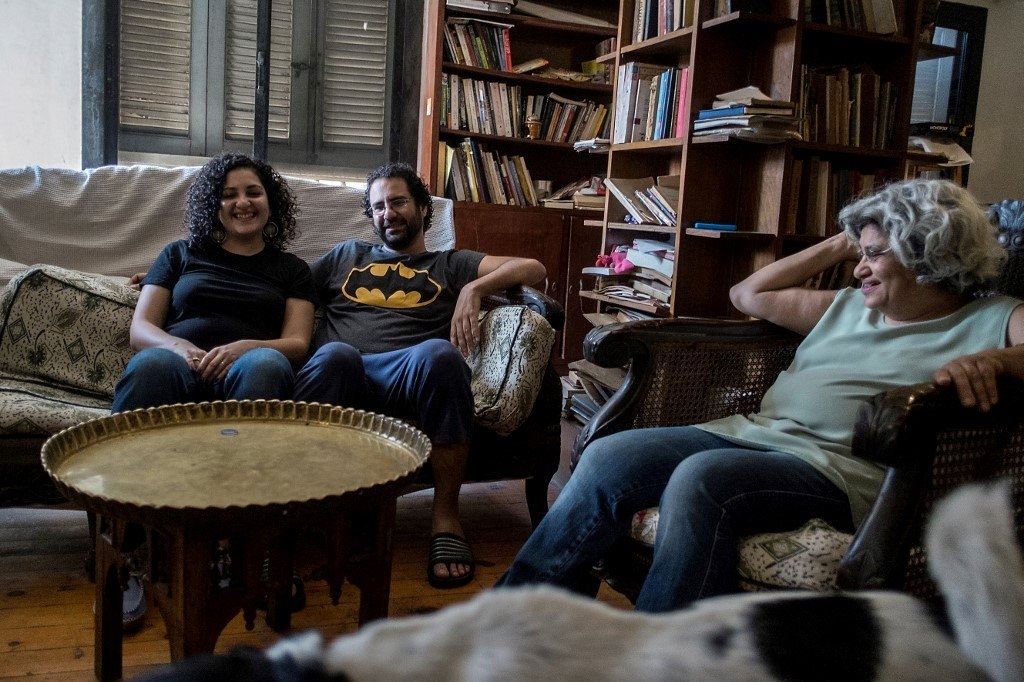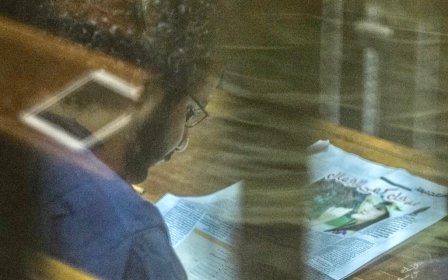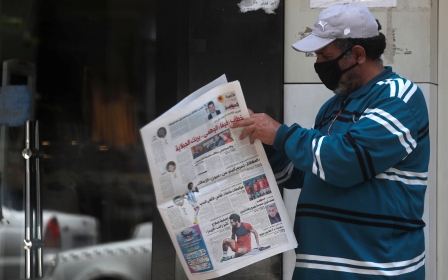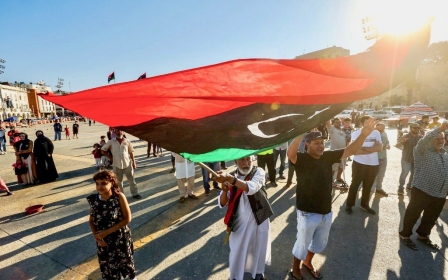Egypt: Alaa Abdel Fattah's family assaulted outside prison ‘while police watched’

The family of detained Egyptian human rights activist Alaa Abdel Fattah was assaulted outside Cairo's Tora prison complex on Sunday while police stood by "doing nothing", according to social media posts by his sisters.
“They sent women thugs to beat us up in front of the prison gate and the officers and the men stood and watched,” Sanaa Seif, Abdel Fattah’s sister, wrote on Facebook.
“One plainclothes man just said take them outside the barrier, don’t beat them up here.”
Mona Seif, another sister, posted images of bruises on her body and also on those of her mother and sister as a result of the assault. She said that one thug beat her sister with a stick and another dragged her by the hair and stole their bags, IDs, money and other personal belongings.
“The general prosecutor won’t move and the president has no problem with people being beaten up at the gates of a prison for demanding the bare minimum of their rights,” she said in a Facebook post.
New MEE newsletter: Jerusalem Dispatch
Sign up to get the latest insights and analysis on Israel-Palestine, alongside Turkey Unpacked and other MEE newsletters
The three women had been waiting for more than a day in the hope of receiving any correspondence from Abdel Fattah, who had recently gone on hunger strike and been banned from family visits for about three months.
The ban on visits came into effect following the outbreak of coronavirus in the country in February.
Rights groups and advocates have repeatedly called on the Egyptian government to free political prisoners to prevent an outbreak of Covid-19 in the country’s overpacked prisons.
According to estimates by the Geneva-based Committee for Justice, the pandemic has reached 28 places of detention in eight Egyptian governorates, claimed the lives of 10 detainees and prison staff members, in addition to 133 confirmed and suspected cases among detainees, 22 police officers and two staff members.
Abdel Fattah, 38, was one of the leading voices during the 2011 uprising that led to the ousting of the then-president, Hosni Mubarak. In 2015, he was sentenced to five years in prison on charges of protesting without permission and was granted conditional release in March last year.
The terms of his parole meant that he had to spend every night in a cell in his local police station, where he was arrested again in September.
Abdel Fattah’s mother and aunt were briefly detained on 18 March after holding a small protest calling for the release of prisoners.
Middle East Eye delivers independent and unrivalled coverage and analysis of the Middle East, North Africa and beyond. To learn more about republishing this content and the associated fees, please fill out this form. More about MEE can be found here.




